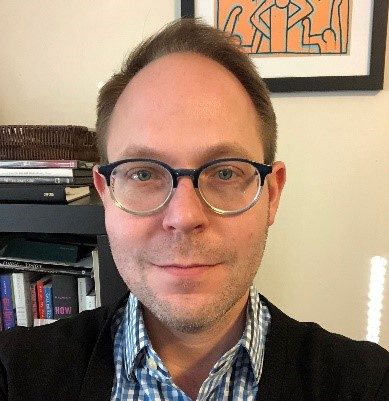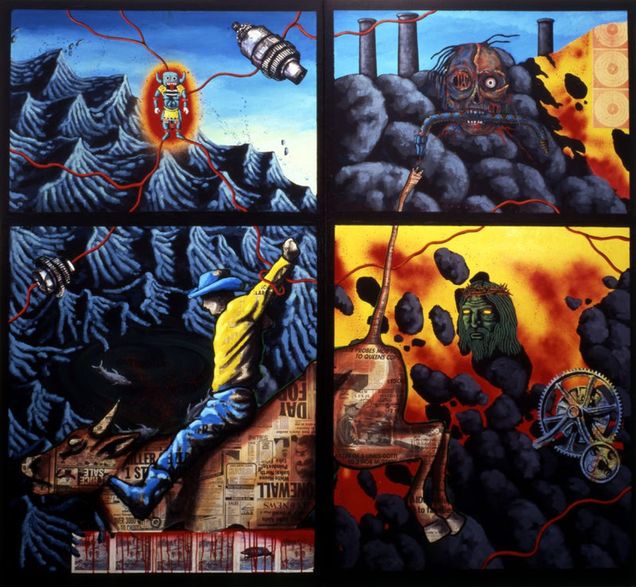What is the Health Humanities?
We take a very broad approach to the health humanities. This field brings together a variety of disciplines, drawing on the humanities and social sciences, as well as work in the arts, to understand aspects of the human condition related to health and medicine. It encompasses the more specific field of medical humanities, which seeks to utilize humanities knowledge to improve medical research and practice, but just as commonly includes even more capacious approaches to understanding the cultural, ethical, and religious aspects of health across human history. We have a number of faculty at BU who teach and conduct research that falls under this umbrella as well as many graduate and undergraduate students pursuing this work in courses and in research. We hope to draw on these strengths, consolidating and expanding our resources to make this important work visible, and to demonstrate how the health humanities offers an innovative, timely, and rich site for engaging students and faculty from across the university and our broader Boston community.
For more on this program, check out the following conversation between Anthony Petro and Arthur George Kamya in the Critical Conversations Series hosted by the BU Center for the Humanities:

July 2020. Anthony Petro, Associate Professor in BU’s Department of Religion and the Women, Gender & Sexuality Studies Program, began his term as the NEH Distinguished Teaching Professor on July 1, 2020. Established in 1993 through an NEH challenge grant met by funds from BU alumni and friends, the professorship is awarded every three years to a teacher scholar in recognition of excellence in teaching and in anticipation of the holder working to enrich BU undergraduate programs in the humanities. Professor Petro will use his professorship to establish the health humanities as a prominent and permanent presence in BU’s intellectual life.
What is/are the health humanities? What are your plans for establishing health humanities at BU?
The health humanities brings together a variety of disciplines, drawing on the humanities and social sciences, as well as work in the arts, to understand aspects of the human condition related to health and medicine. It encompasses the more specific field of medical humanities, which seeks to utilize humanities knowledge to improve medical research and practice, but just as commonly includes broader approaches to understanding the cultural, ethical, and religious aspects of health across human history. BU’s peers such as Vanderbilt, Emory, Rice, and Northeastern have successfully established interdisciplinary programs in health humanities. It makes sense that we establish a health humanities program here at BU, considering the University’s incredible resources — including our superb medical and public health schools, relevant classes in departments as varied as classics, philosophy, anthropology, and sociology, not to mention my own “Religion, Health and Medicine” class — all of which constitute an ideal foundation.
During my time as the NEH Distinguished Teaching Professor, I hope to develop the health humanities at BU in three stages. First, I intend to establish a one-stop-shop for health humanities by launching a new website — we hope it will go live in August. The website will allow students to see a comprehensive list of health humanities related courses offered at BU. The site will also host other health humanities resources, such as information about grant and funding opportunities, conferences and events, and resources for research, including a reading list and links to library or archival materials. We’ll even have a separate section devoted to scholarly resources for understanding COVID-19.
Second, I hope to convene a working group composed of faculty who research, write, or teach in the health humanities to strategize ways of expanding existing and developing new health humanities courses and programming. Part of our work together might include designing a new foundational class, “Introduction to Health Humanities.” Together with the faculty working group, we will consider formalizing (out of the various courses and opportunities available to students) an undergraduate certificate or perhaps even a minor in health humanities. Since pre-med, Sargent, CAS, and other BU students already do much of this work, it makes sense to recognize these efforts with a certificate or minor in health humanities. And such training will help students to think historically and critically in any fields they move into in the future.
Finally, I hope to offer small research grants for students to pursue work in the health humanities. Students would be encouraged to use this funding for senior thesis projects or other independent or collaborative work. They might, for instance, use grants to support the completion of the BU Hub’s Cross-College Challenge. I also hope to continue to support the Public Humanities Undergraduate Fellows program, launched by my colleague Professor Erin Murphy (the prior NEH Distinguished Teaching Professor in the Humanities), and to incorporate health-oriented internship opportunities.
How might the health humanities help us better frame the current COVID-19 epidemic?
The field of health humanities reminds us that COVID-19 is more than a biomedical phenomenon. Pandemics are medical and public health events, but they are also cultural and even moral events that emerge from longer histories and play out in cultural terms, even within medical research labs and public health discussions, as well as on our social media and in our everyday lives. In the U.S., we have seen, very tragically, how COVID-19 affects some communities more than others — Black Americans, for instance, continue to be among the demographic groups most hard hit. What this shows, in part, is that we cannot understand the effects of the pandemic without understanding histories of racism in our country, including racism in employment and in access to health care. Looking at the pandemic from the perspective of the health humanities might also help us understand how face masks have become a flashpoint, not only for protecting the health of communities from spreading the coronavirus, but also for ongoing political fault-lines, as some conservatives have taken up mandates to wear masks as an infringement upon personal freedom. How did we get to this point? Why are so many Americans resistant to wearing a mask, a seemingly simple (if sometimes slightly uncomfortable) tool we have to stem the spread of this pandemic and to get society back on track? What political and cultural histories fuel their claims about personal freedom and their distrust of public health leaders? The answers to such questions are often more historical and cultural than medical.
How will the health humanities promote and enhance undergraduate education at BU?
I envision the health humanities building on the missions of programs like the BU Hub and the Core Curriculum that encourage students to explore life’s big questions, attending to human complexity and diversity in pursuit of what it means to be an informed citizen or a good neighbor — or to grapple with the age-old question: what is a good life? And by asking what role “health” plays in these questions. It seems commonplace to assume that “health” is a good thing, but what exactly does it mean to be “healthy”? Who has the authority to define what counts as healthy, and should health take precedence over other goods that we might desire? What happens when individual or public health come into conflict with other values, like freedom, as some people claim mask mandates do? These are the kinds of questions I hope students will ask by participating in such a program. And I approach the health humanities rather capaciously, placing it in dialogue with digital humanities, environmental humanities, disability studies, queer and transgender studies, and critical race studies — among other areas — both to demonstrate the reach of “health” rhetoric and the many paths through which students might study in this field.
How do the health humanities inform your scholarship?
After the Wrath of God: AIDS, Sexuality, and American Religion, my first book, examines the political and religious history of culture wars responses to the HIV/AIDS crisis in the eighties and early nineties. I was curious how the AIDS crisis at the time came to be associated with homosexuality in particular and how that association forged a lasting stigma, in which people often understood an HIV or AIDS diagnosis as a punishment for some kind of sin — usually, in this context, a sexual one, as many Americans (even seemingly secular ones) considered homosexuality to be sinful or unnatural. My book explores both the shadow cast by this association between the AIDS crisis and sexual sin as well as the history of religious and public health responses to the crisis. I look as well at how AIDS activist groups like ACT UP/NY — a group often considered secular if not anti-religious — also took up religious, including specifically Christian, iconography in their work to fight against religious and political discrimination.

I pick up some of these threads in my current project, called Provoking Religion: Sex, Art, and the Sacred in the Modern United States. This book explores how queer and feminist artists — Robert Mapplethorpe, Judy Chicago, Andres Serrano, David Wojnarowicz, Ray Navarro, and Renee Cox, among others — got in “trouble” among conservative leaders for work deemed sacrilegious or pornographic (often both). But I also ask how and why religious iconography proved so important for these artists — why does it appear so often and how does it animate their work? Are they just mocking religion, or are they doing something else? Provoking Religion offers a new perspective on the history of the culture wars by tracing these debates over the past forty years. It makes two claims: that debates over sex, art, and religion are best understood as fights over competing visions of the sacred and that examining the religious history of progressive artists in this period demonstrates how they made their own claims to the sacred, claims that historians have too often banished to the annals of profane history.
You spent the 2019-2020 academic year on leave from BU, as a Member of the School Historical Studies at Princeton University’s Institute for Advanced Study. What was that like?
It was amazing! Like most professors, the two things I love most about this job are teaching and doing research. My time at the Institute for Advanced Study allowed me to spend two semesters focused full-time on my current book project — to read widely and to think collaboratively with fellows scholars from around the world. Residence at the IAS gave an extra lift to my scholarship. This was especially the case with regard to art history, a subject that is outside my primary field of expertise yet integral to my current project. I attended a regular seminar devoted to art history, which allowed me to see how art historians work and to receive amazing feedback on some of my own writing. And finally, I have to admit that, aside from the intellectual nourishment, the IAS also gourmandized us with incredible daily lunches specially prepared by a superb resident chef, not to mention the doubly-delicious cookies offered daily during their famous “afternoon teas.”